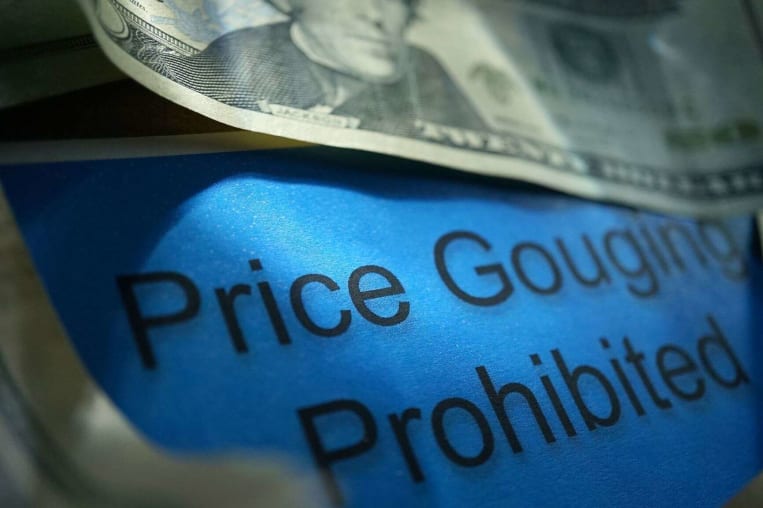
BBB Tip: False advertising, price gouging is unfair, illegal

(Getty Images)
People often find that the cost of high-demand items skyrockets during popular events or emergencies, such as ice storms, severe cold snaps, power outages, hurricanes, floods or other types of disasters. Better Business Bureau often receives reports about the frequency of scams involving sought-after items, such as high prices on gas, water, or hotel rooms after a natural disaster or during a popular event. Some state attorneys general offices have initiated state price-gouging laws, which automatically go into effect during a declared state of emergency to prevent businesses from over-charging customers.
Price gouging is a term referring to when a seller spikes the prices of goods, services, or commodities to a level much higher than is considered reasonable or fair and is considered exploitative, potentially to an unethical extent. The best way to avoid price gouging is to plan ahead and have the necessary supplies you need before a disaster, if possible.
BBB warns businesses to avoid the temptation to raise prices during popular events or a situation such as a storm or a pandemic because it may be illegal to do so in certain states and because it erodes marketplace trust. People will remember which businesses took advantage of them.
Anyone who suspects price gouging during a declared state of emergency should report it to Better Business Bureau by filing a complaint, or go to BBB Ad Truth. Consumers can report these activities to the state attorney general’s office. When reporting a price gouging complaint, gather as much information as safely possible and follow these three tips:
- Be as specific about the transaction as possible, including the name and address of the business, names of any employees involved, and information detailing the spike in pricing.
- Gather documentation supporting the price gouging (receipts, photos of products and their advertised pricing, invoices, etc.)
- Compare pricing of similar products with other sellers in the area and online. It’s important to note similarities and differences between brands, size/quantity, manufacturers, model numbers, and prices.
- Check your state's laws. Price gouging laws vary by state. Consumers should first check their state's specific regulations to understand if an increase qualifies as price gouging. Some states may have specific thresholds for what constitutes illegal price hikes.
- Report to federal agencies. For price gouging related to essential goods during emergencies, the Federal Trade Commission (FTC) or the Department of Justice may investigate. Provide the appropriate links.
- Spread awareness. Share your experiences on social media (without violating platform terms) to raise awareness.
For more information
Report scams to BBB Scam Tracker
Learn more about charitable giving after a tragedy
BBB Serving West Florida contributed to this article.
Still Need Assistance?
Contact Your Local BBB
Your local Better Business Bureau can assist you with finding businesses you can trust. Start With Trust®.
Additional Resources
Let BBB help you resolve problems with a business
Research and report on scams and fraud using BBB Scam Tracker
Learn more about the value of BBB Accreditation